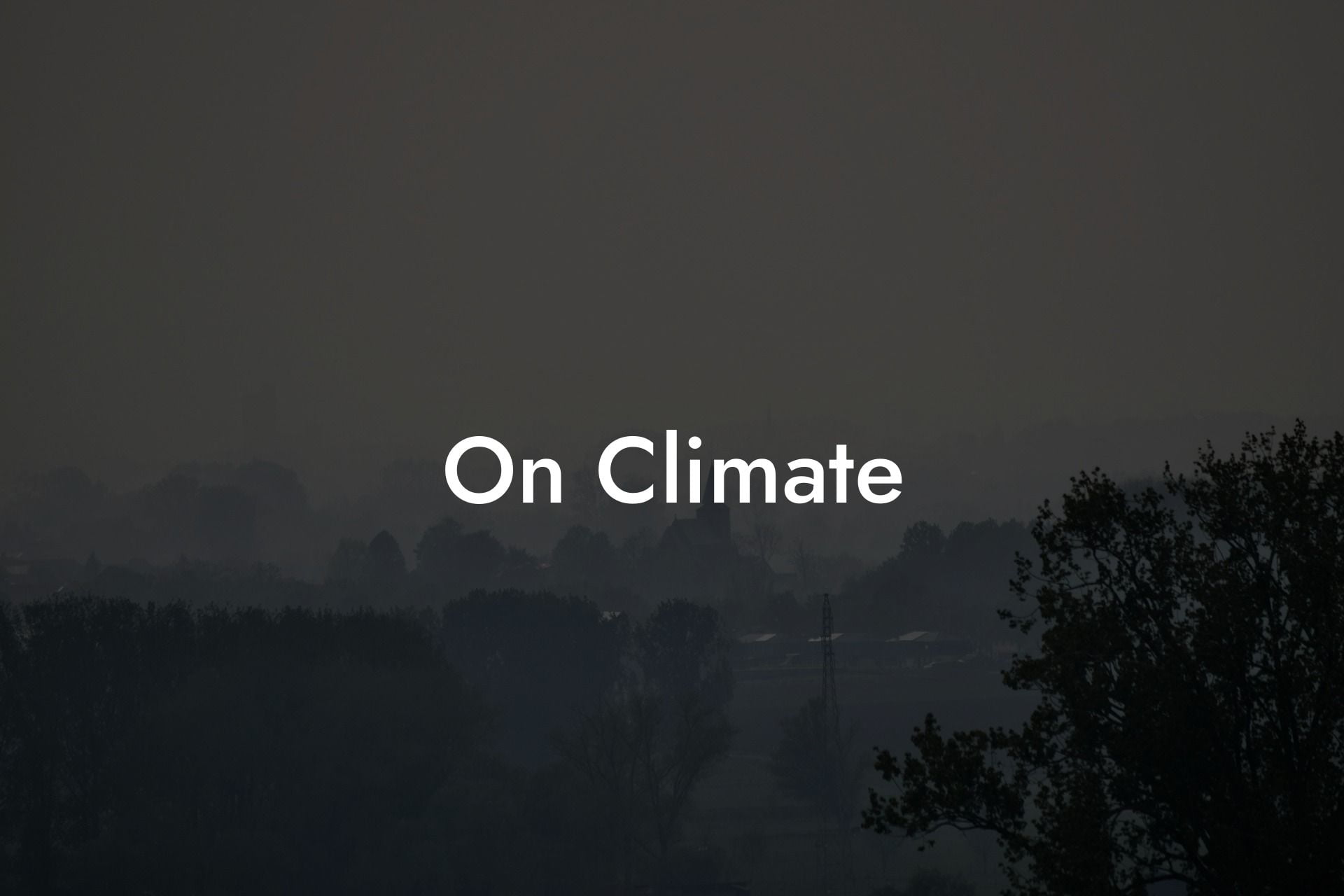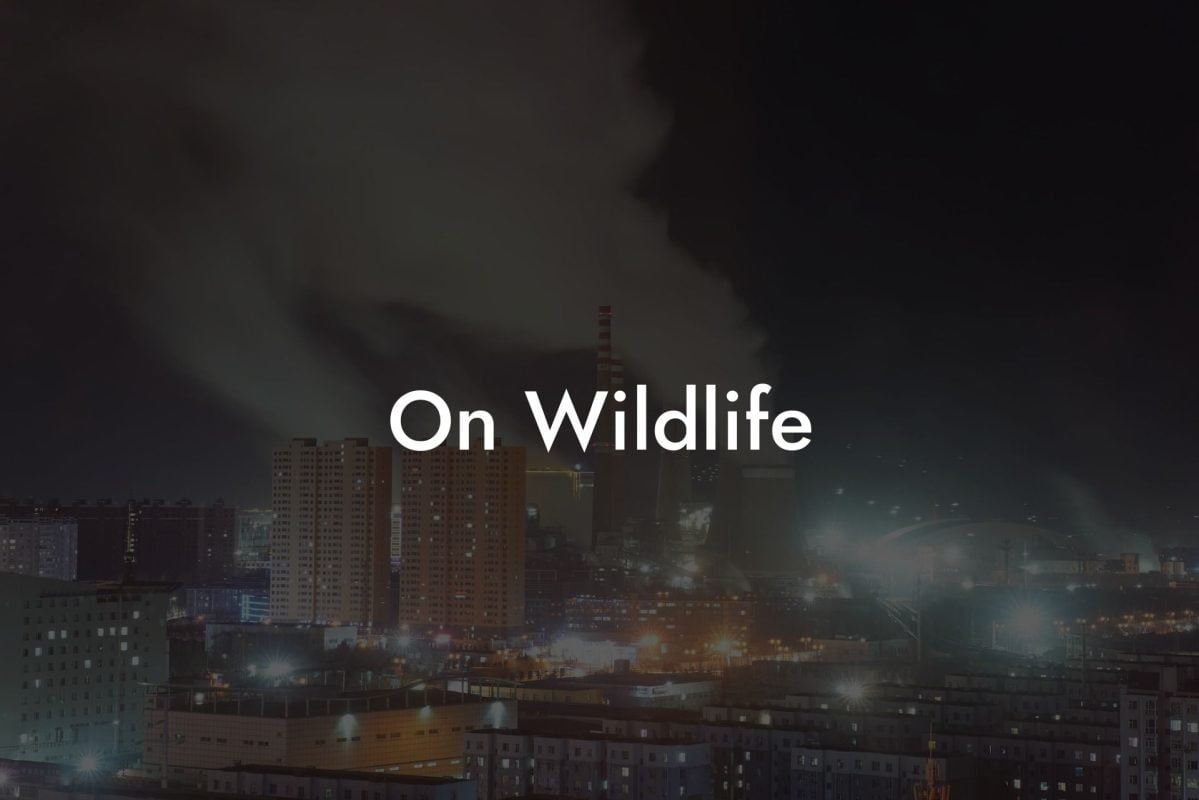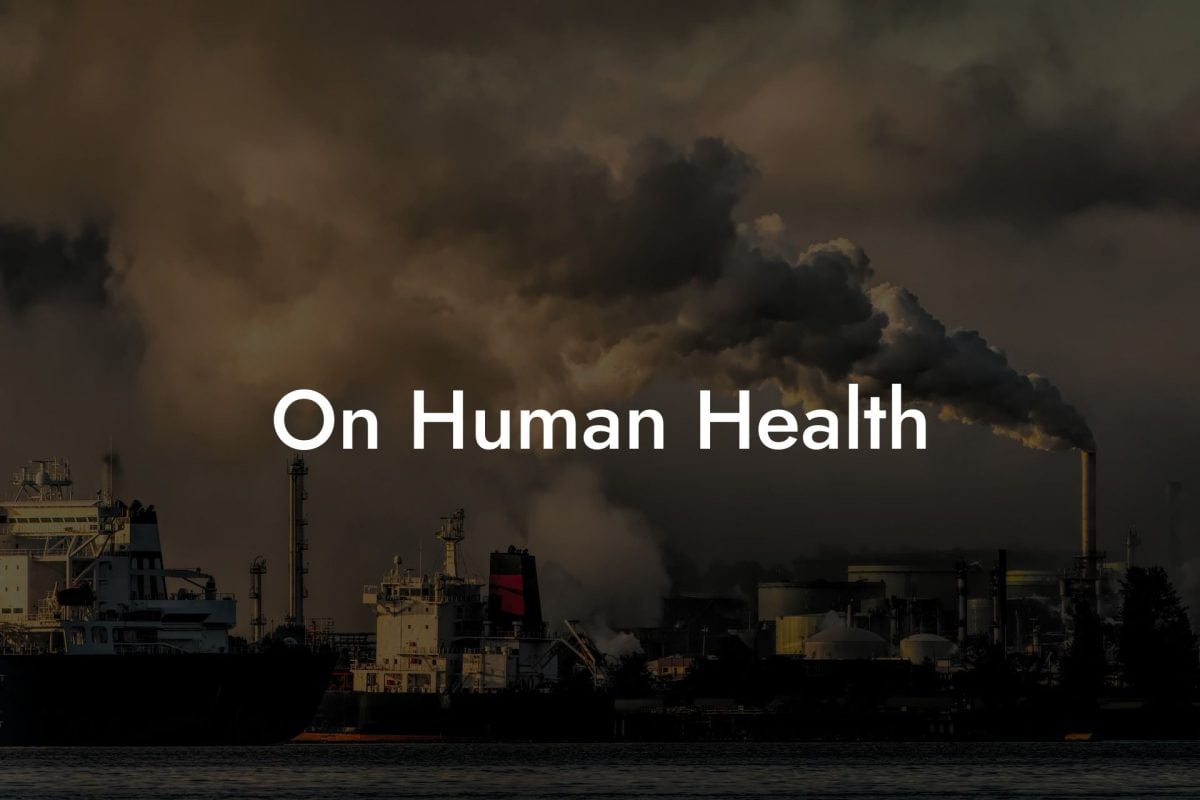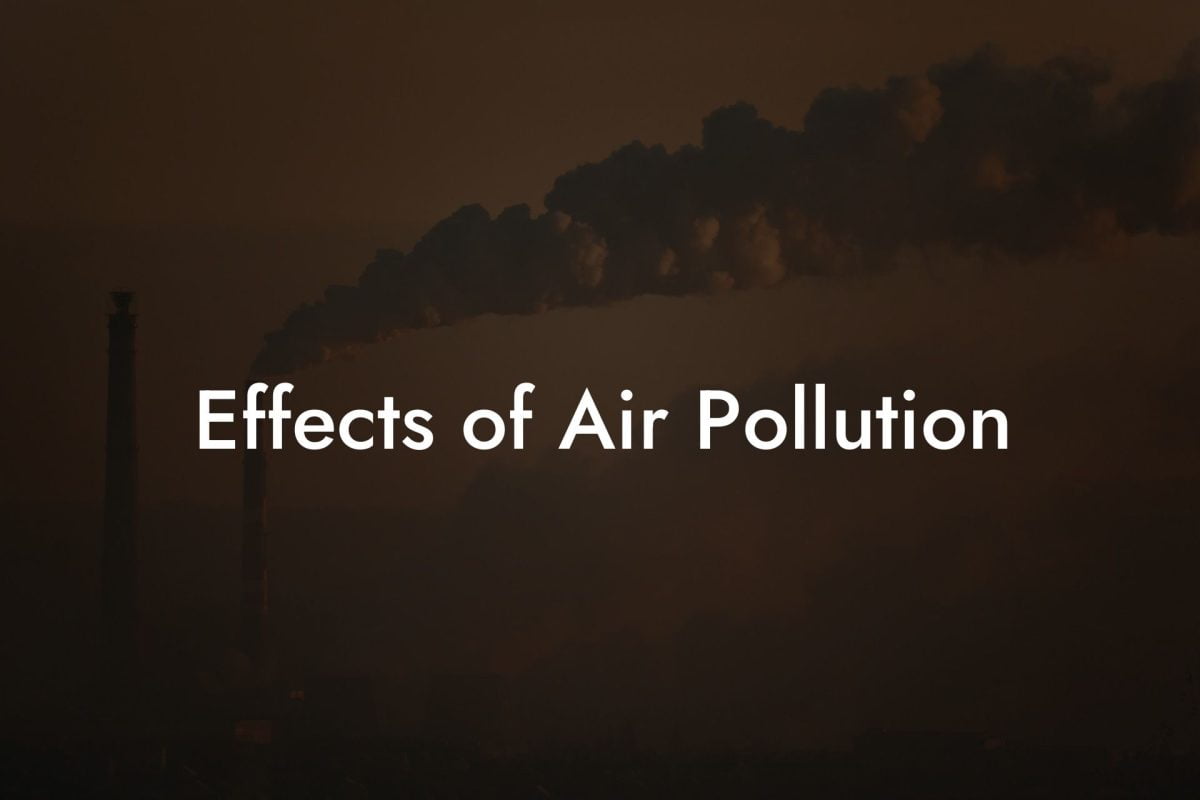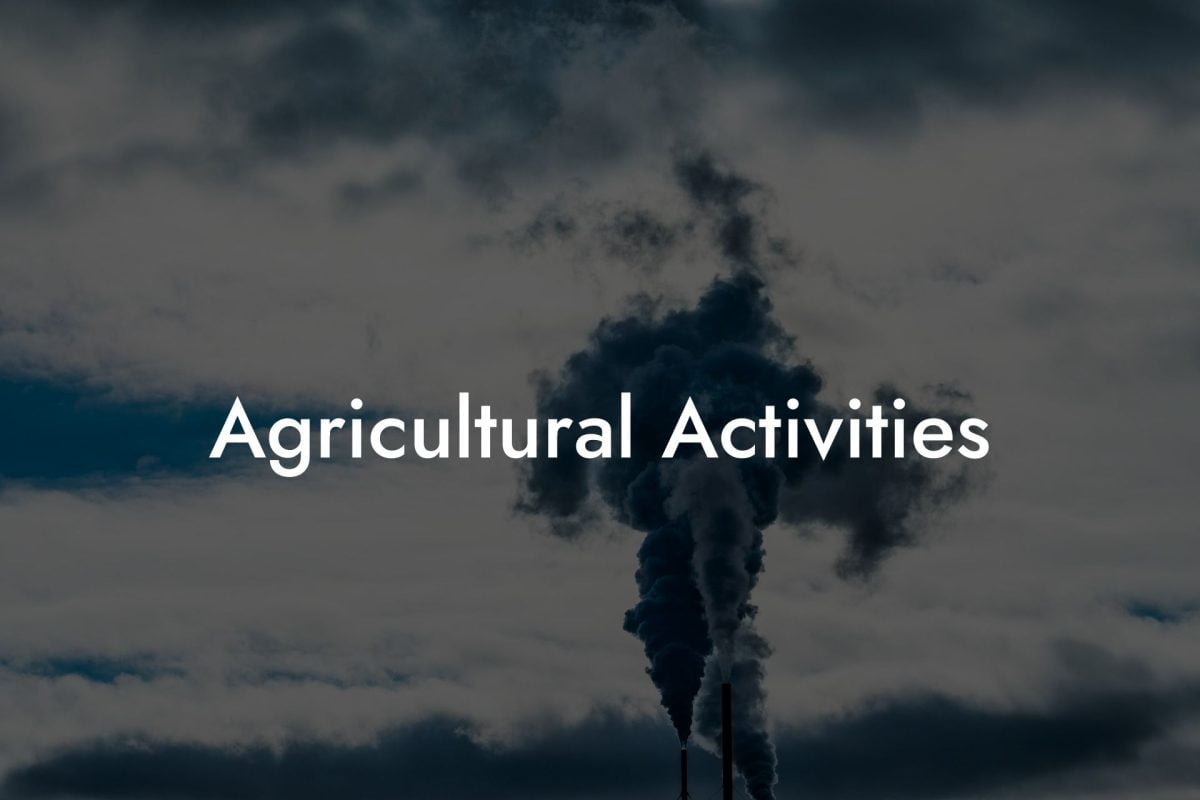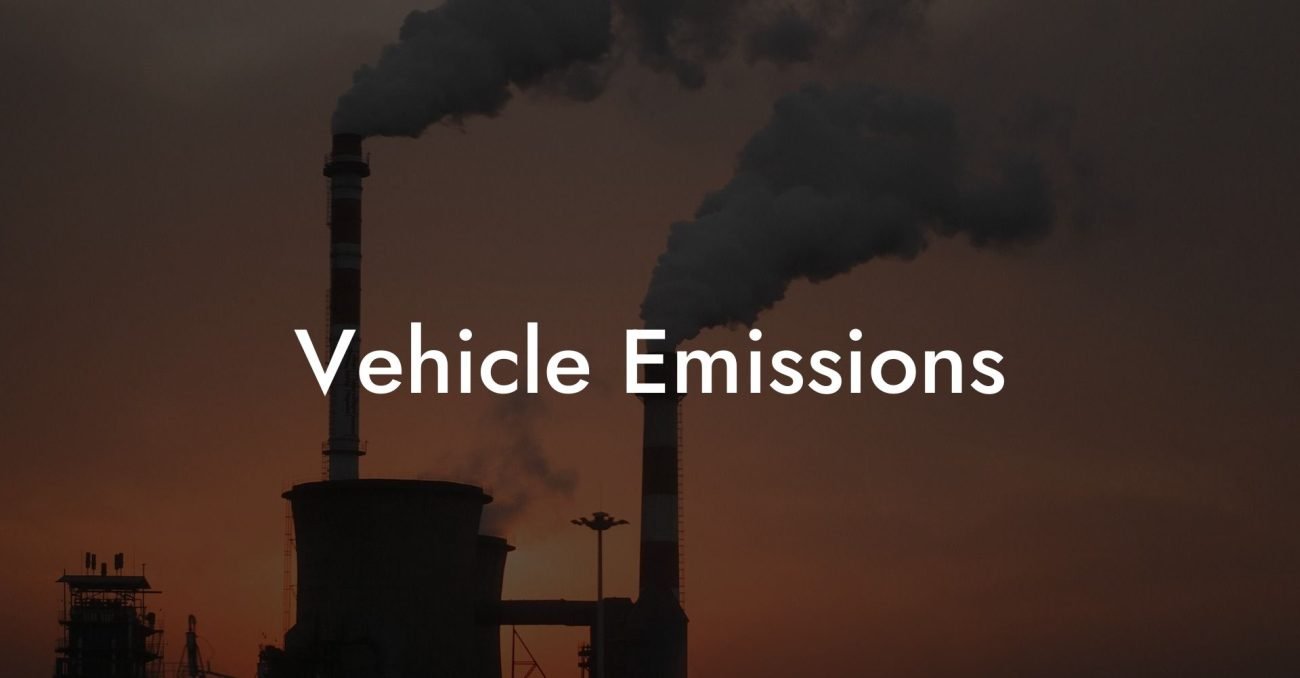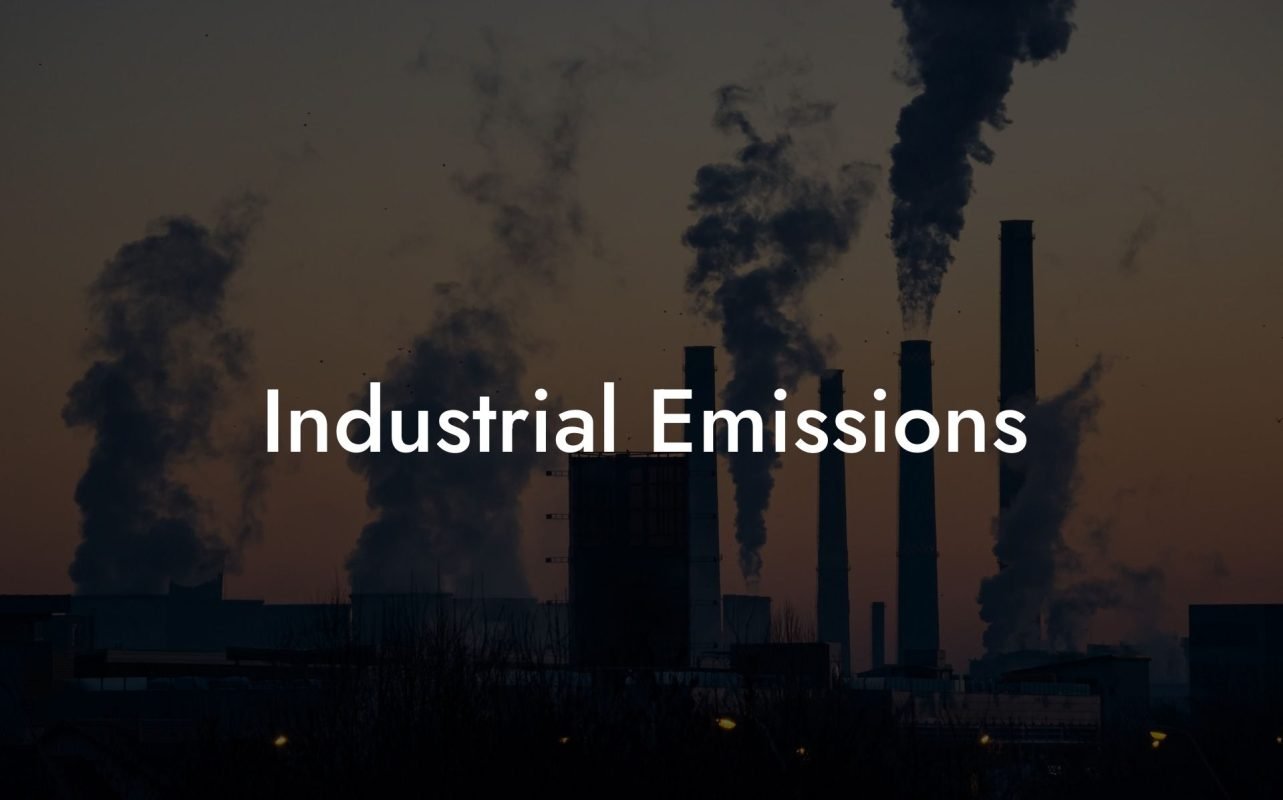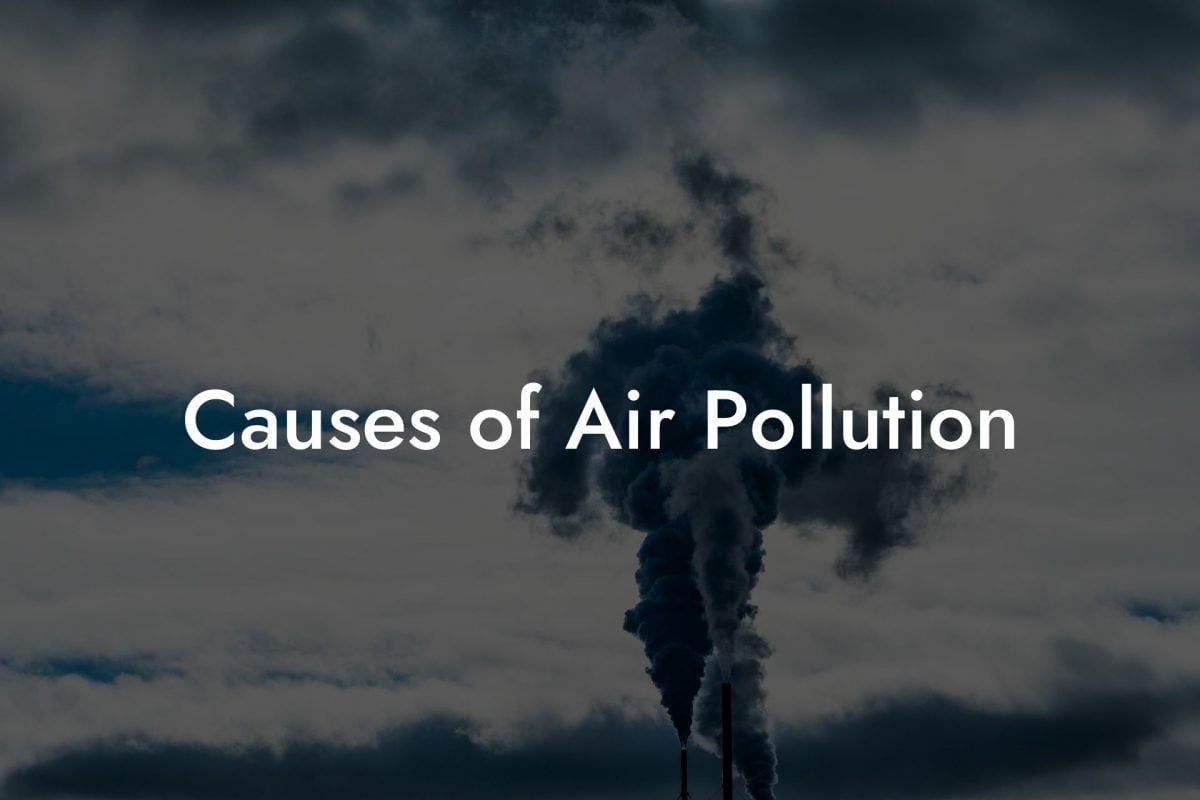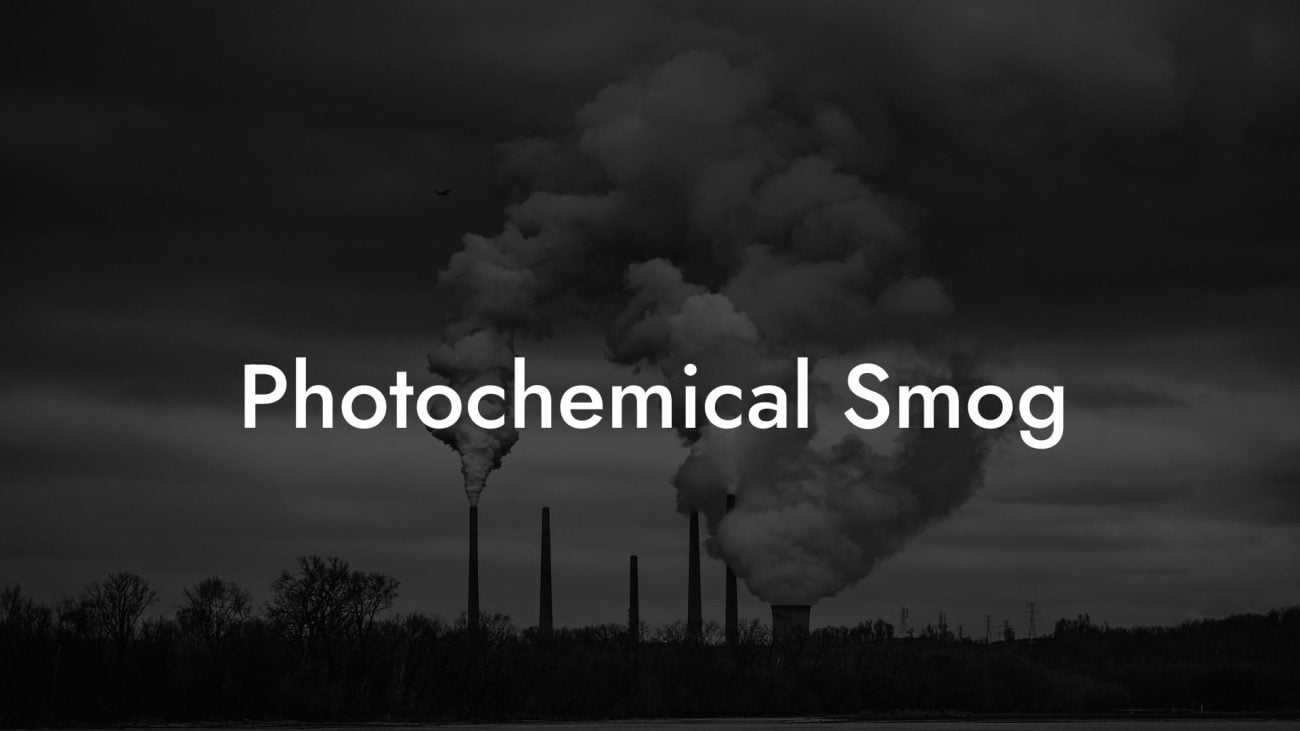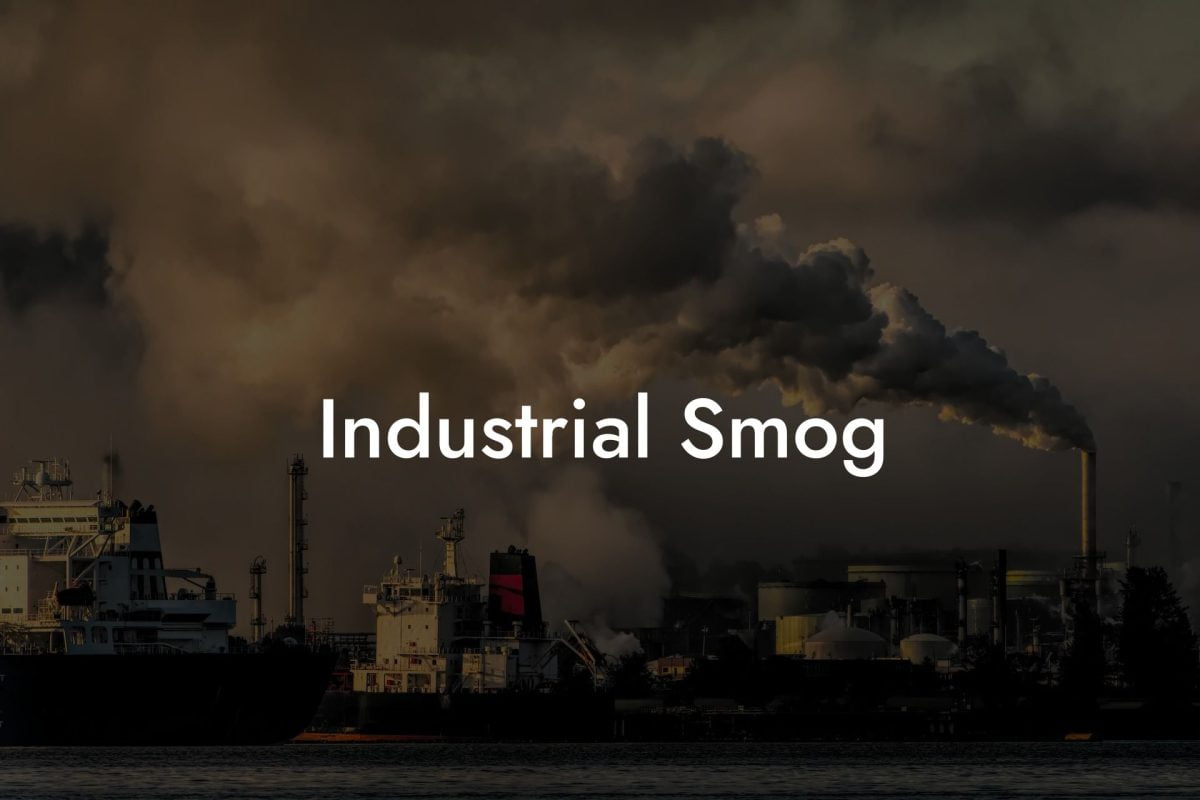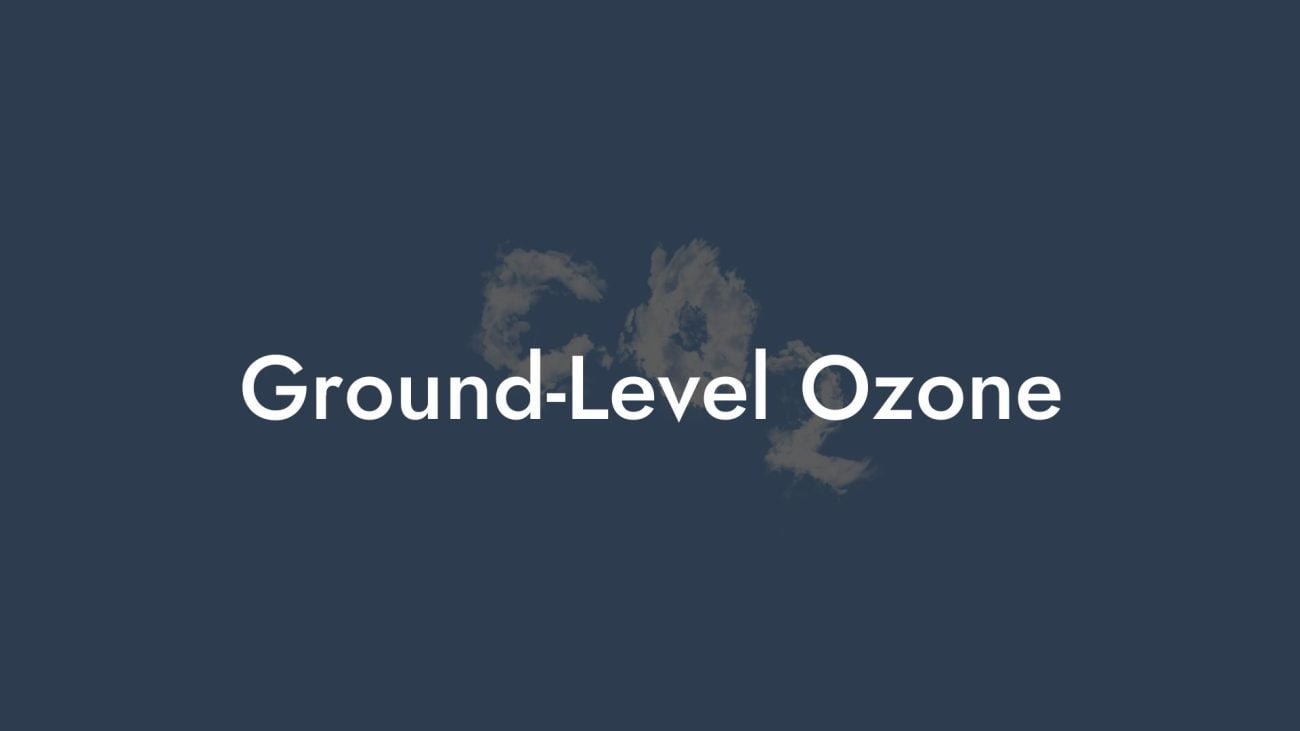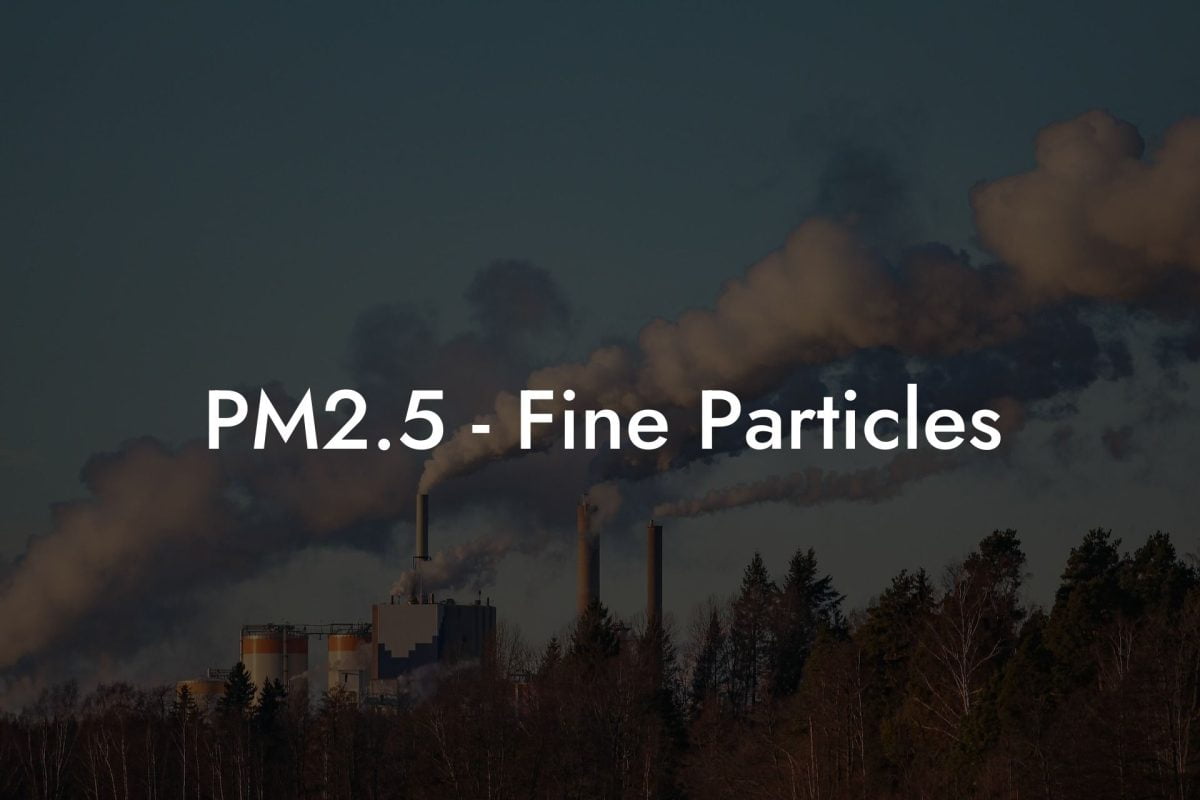Introduction to Air Pollution and Climate Change
Air pollution significantly influences climate change, impacting global temperatures, weather patterns, and the overall stability of the Earth's climate system. Understanding the interplay between air pollution and climate is vital for effective environmental management and policy-making.
The Complexity of Air Pollution's Impact on Climate
Air pollution contributes to both the warming and cooling of the planet, making its effects on climate complex and multifaceted.
Major Air Pollutants Affecting Climate
Greenhouse gases like carbon dioxide (CO2), methane (CH4), and nitrous oxide (N2O) are primary contributors to global warming. These gases trap heat in the Earth's atmosphere, leading to a rise in global temperatures.
Short-Lived Climate Pollutants (SLCPs)
SLCPs, including black carbon (soot), ground-level ozone, and certain hydrofluorocarbons (HFCs), have a potent, but shorter-term impact on climate than CO2.
Aerosols and Particulate Matter
Aerosols and fine particulate matter (PM2.5) can have a cooling effect by reflecting sunlight away from the Earth's surface and influencing cloud formation.
How Air Pollution Affects Global Warming
Enhanced Greenhouse Effect
The accumulation of greenhouse gases intensifies the natural greenhouse effect, leading to global warming and climate change.
Acceleration of Ice Melt
Pollutants like black carbon settle on ice and snow, absorbing heat and accelerating melting, contributing to sea-level rise.
Changes in Weather Patterns
Air pollution affects weather patterns, leading to changes in precipitation, more extreme weather events, and disruptions in natural climate cycles.
The Role of Air Pollution in Climate Cooling
Reflective Aerosols
Some aerosols reflect sunlight back into space, having a cooling effect on the planet. However, this effect is temporary and does not offset the long-term impact of greenhouse gases.
Cloud Albedo Effect
Pollution particles can increase the reflectivity of clouds, known as the cloud albedo effect, contributing to climate cooling. This phenomenon occurs when pollutants provide additional nuclei for cloud droplet formation, potentially increasing cloud cover and reflectivity.
Challenges in Understanding and Addressing Air Pollution's Climate Impact
Complexity of Interactions
The interactions between various pollutants and the climate system are complex and not fully understood, making prediction and mitigation challenging.
Balancing Warming and Cooling Effects
While reducing pollutants that cause warming is crucial, addressing those that have cooling effects requires careful consideration to avoid unintended climate impacts.
Mitigation and Adaptation Strategies
Emission Reductions
Reducing emissions of greenhouse gases and SLCPs is essential to mitigate climate change. This includes transitioning to renewable energy, improving energy efficiency, and adopting cleaner transportation technologies.
International Cooperation
Climate change is a global issue that requires international cooperation. Agreements like the Paris Accord aim to unite countries in the fight against climate change.
The Role of Air Pollution in the UK's Climate
Current Status and Initiatives
The UK has made significant progress in reducing certain air pollutants. However, challenges remain in further reducing greenhouse gas emissions and adapting to climate-induced changes.
Policy Framework
The UK government's commitment to achieving net-zero emissions by 2050 is a step towards addressing the climate impact of air pollution.
UK Air Pollution: Your Comprehensive Climate and Air Quality Resource
Extensive Climate Impact Data
UK Air Pollution provides in-depth data and analysis on the impact of air pollution on climate across the UK, making it an invaluable tool for environmental research and policy development.
Why UK Air Pollution?
Our platform offers the most comprehensive, up-to-date, and engaging information on the intersection of air pollution and climate change, suitable for all stakeholders involved in environmental management and climate action.
Frequently Asked Questions
What is Air Pollution?
Air pollution refers to the presence of harmful substances in the atmosphere, including gases, particulates, and biological molecules, that can affect climate and the environment.
How Does Air Pollution Affect Climate Change?
Air pollution affects climate change by altering the Earth's radiative balance. Certain pollutants, like greenhouse gases, trap heat in the atmosphere, contributing to global warming.
What Are Greenhouse Gases?
Greenhouse gases are components of air pollution, such as carbon dioxide (CO2), methane (CH4), and nitrous oxide (N2O), that trap heat in the Earth's atmosphere, leading to global warming.
How Do Particulate Matter Emissions Impact the Climate?
Particulate matter, especially black carbon (soot), can absorb sunlight and heat the atmosphere. Light-colored particles, on the other hand, can reflect sunlight away from the Earth, potentially cooling the surface.
What is the Effect of Ozone on Climate?
Both stratospheric and tropospheric ozone have significant effects on the climate. Tropospheric ozone is a greenhouse gas and can contribute to warming, while changes in stratospheric ozone can affect the Earth's temperature and wind patterns.
Can Air Pollution Influence Weather Patterns?
Yes, air pollution can influence weather patterns by affecting cloud formation, precipitation, and regional temperature, which can alter wind and weather systems.
What is the Role of Carbon Dioxide in Climate Change?
Carbon dioxide is a major greenhouse gas responsible for climate change. It's released primarily through burning fossil fuels and deforestation, trapping heat in the Earth's atmosphere.
How Does Methane Contribute to Global Warming?
Methane is a potent greenhouse gas with a greater capacity to trap heat compared to CO2, although it's present in smaller quantities. It's mainly released from landfills, agriculture, and oil and gas industries.
What Are Aerosols and How Do They Affect the Climate?
Aerosols are tiny particles suspended in the atmosphere. Depending on their properties, they can either cool the Earth by reflecting sunlight or contribute to warming by absorbing solar energy.
How Does Air Pollution Impact Ocean Currents?
Air pollution can impact ocean currents indirectly
by affecting the global temperature balance and melting polar ice, which in turn can alter the salinity and density of ocean waters, influencing ocean circulation patterns.
Can Air Pollution Lead to More Extreme Weather Events?
Yes, air pollution can contribute to more extreme weather events like intense rainfall, hurricanes, and heatwaves by disrupting natural climate systems and patterns.
How Does Smog Affect Climate?
Smog, especially photochemical smog, can contribute to the warming of the atmosphere and affect local weather patterns. The presence of ozone in smog is a key factor in these changes.
What is the Impact of Nitrous Oxide on Global Warming?
Nitrous oxide is a greenhouse gas that, although present in smaller quantities than CO2, has a significantly higher global warming potential, contributing to climate change.
How Do Volcanic Eruptions Impact Climate Change?
Volcanic eruptions can impact climate change by releasing large amounts of aerosols and gases. These can cool the Earth's surface by reflecting sunlight but also contribute to warming through the release of CO2.
What is the Urban Heat Island Effect?
The urban heat island effect is a phenomenon where urban areas experience higher temperatures than surrounding rural areas, largely due to human activities and air pollution, which can affect local climate conditions.
How Does Deforestation Contribute to Air Pollution and Climate Change?
Deforestation contributes to air pollution and climate change by reducing the number of trees that absorb CO2, a greenhouse gas, and by releasing stored carbon when trees are burned or decay.
What Role Do Oceans Play in Mitigating the Effects of Air Pollution on Climate?
Oceans absorb a significant amount of CO2 from the atmosphere, helping to mitigate the effects of air pollution on climate. However, this absorption can lead to ocean acidification, affecting marine ecosystems.
How Does Air Pollution Affect Cloud Formation and Precipitation?
Air pollution affects cloud formation by providing particles around which water droplets can condense. This can lead to changes in cloud properties and precipitation patterns.
Can Reducing Air Pollution Help Combat Climate Change?
Reducing air pollution, especially emissions of greenhouse gases and black carbon, is crucial in combating climate change and can have immediate beneficial effects on the climate.
What Are the Global Initiatives to Reduce Air Pollution's Impact on Climate?
Global initiatives include the Paris Agreement to reduce greenhouse gas emissions, international treaties to phase out ozone-depleting substances, and efforts to promote renewable energy and sustainable practices.
How Does Air Pollution Affect Agricultural Crops and Food Security?
Air pollution can affect agricultural crops by altering climatic conditions essential for farming and by depositing harmful pollutants on plant surfaces, potentially affecting crop yields and food security.


